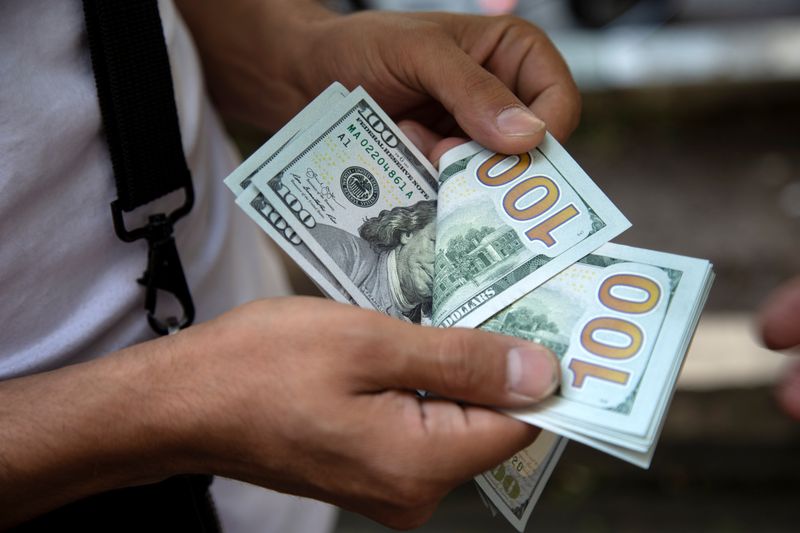Investing.com — Most Asian currencies fell on Wednesday as the dollar rebounded from 15-month lows, with recent U.S. data spurring more bets that the Federal Reserve was close to pausing its rate hike cycle.
The and rose about 0.1% each in Asian trade, extending an overnight rebound after data showed that U.S. rose less than expected in June.
The reading indicated that U.S. inflation was likely to ease further in the coming months, but cemented bets that the Fed will raise rates one last time in late-July before announcing a pause. The central bank is widely expected to next week.
Still, overnight strength in the dollar pressured most Asian currencies, with the losing 0.3%, while the sank 0.4%.
Concerns over slowing economic growth in China also kept sentiment towards Asia largely negative.
Chinese yuan extends losses after weak GDP
The was among the worst-performing Asian currencies on Wednesday, down 0.4% and once again crossing the 7.2 mark against the dollar.
The currency logged steep losses this week after data showed that a slowed substantially in the second quarter, denting sentiment over Asia’s largest economy.
While the weak economic readings pushed up expectations for more stimulus measures from Beijing, any increases in local liquidity conditions are likely to be negative for the yuan.
Concerns over China also spilled over into other Asian currencies with exposure to the country. The fell 0.1%, while the and lost 0.4% each.
New Zealand dollar gains as sticky inflation spurs rate hike bets
The was among the few gainers for the day, rising 0.2% after data showed that in the country remained sticky through the second quarter. The currency was trading close to an over five-month high.
While the had signaled an end to its nearly two-year rate hike cycle earlier in July, the overheated inflation data spurred bets that the central bank may be forced into raising interest rates further.
But the New Zealand economy is expected to deteriorate further this year, after it entered a technical recession in the first quarter.
Read the full article here












